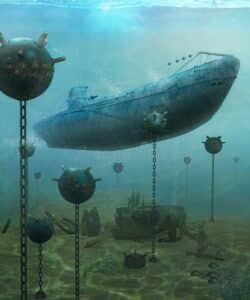The management of personal data is at the heart of current concerns.Cookies play an essential role in the functioning of online services.They allow for personalizing and improving your experience on websites.
Cookies and data are used to deliver and maintain Google services, ensure security by protecting against spam, fraud, and abuse, and track outages for better reliability of services. They also allow for measuring public engagement and site statistics to understand the use of services and improve their quality. If you choose to accept all, these cookies will contribute to the development and improvement of new services, measure the effectiveness of advertisements, as well as display personalized content and targeted ads based on your settings. However, by choosing to reject all, these cookies will not be used for these additional purposes. Unpersonalized content is influenced by the content you are currently viewing, your activity in the active search session, and your location. Unpersonalized ads are based on the content you are viewing and your general location. For a more tailored experience, personalized content and ads may include more relevant results, recommendations, and tailored ads based on your past activities with this browser, such as your previous searches on Google. Additionally, cookies and data are used to adjust the experience so that it is age-appropriate, if relevant. Select “More options” to see additional information, including details on managing your privacy settings. You can also visit g.co/privacytools at any time for more details.

Table of Contents
ToggleIntroduction to the partnership between India and HDF Energy for maritime hydrogen
The collaboration between India and HDF Energy marks a significant step in the global quest to decarbonize the maritime sector. By joining forces, these two players aim to explore and develop innovative hydrogen-based solutions, a clean and renewable energy source. This initiative addresses the growing need to reduce the carbon footprint of ships while promoting sustainability and energy efficiency in the world’s oceans.
Why hydrogen is the key to decarbonizing the maritime sector
Hydrogen emerges as a promising alternative to traditional fossil fuels used in the maritime sector. Its combustion only produces water, thus eliminating carbon dioxide emissions and other air pollutants. Furthermore, hydrogen offers a high energy density, making it ideal for the long distances traveled by ships. By adopting this energy source, the maritime industry can not only reduce its environmental impact but also comply with increasingly stringent emissions regulations.
The objectives of the collaboration between India and HDF Energy
The partnership aims to develop advanced technologies that enable the use of hydrogen as the primary fuel for ships. One of the priorities is to create production, storage, and distribution infrastructures tailored to the specific needs of the maritime sector. In addition, this collaboration seeks to conduct in-depth research on hydrogen propulsion systems, ensuring their efficiency and safety. These joint efforts are essential to establish a robust and sustainable supply chain, facilitating the integration of hydrogen into large-scale maritime operations.
The challenges to overcome for widespread adoption of hydrogen in shipping
Despite the obvious advantages, the adoption of hydrogen in the maritime sector presents several challenges. One of the main obstacles is the high cost of hydrogen technologies, particularly for large-scale production and storage. Additionally, concerns regarding the safety of hydrogen handling must be addressed to ensure a risk-free transition. Existing infrastructures also require adaptations to accommodate this new energy source. To learn more about these challenges, the article on zero-carbon ammonia for maritime transport provides a detailed analysis of the economic and safety aspects.
Impact on the global maritime industry
The integration of hydrogen into the maritime sector could radically transform the industry. It would not only reduce greenhouse gas emissions but also improve the energy efficiency of ships. This transition could also spur technological innovation, opening the door to new economic opportunities and job creation in renewable energy. Moreover, similar initiatives, such as the one described in HDF Energy and its partners in Indonesia, demonstrate the global potential of these solutions for a positive environmental impact on a global scale.
The future of hydrogen energy in maritime transport
The future of hydrogen energy in maritime transport seems promising, with ongoing pilot projects and increasing investments in research and development. India, in collaboration with HDF Energy, positions itself as a leader in this energy revolution. Meanwhile, other regions, such as the United Arab Emirates, also play a crucial role in this transition, as highlighted by the maritime association of the Emirates, a driver of their ascent as a global maritime hub. In the future, broader adoption of hydrogen will lead to cleaner and more sustainable navigation, ensuring healthy oceans for future generations.
Ensuring sustainable marine resources for future generations
Decarbonizing the maritime sector through hydrogen not only contributes to the fight against climate change, but also to the preservation of marine ecosystems. By adopting more sustainable practices, the industry can protect marine resources and ensure their availability for future generations. Initiatives such as ensuring sustainable marine resources demonstrate the industry’s long-term commitment to ocean protection and the promotion of an environmentally friendly blue economy.
Maritime safety in an energy transition context
The transition to hydrogen also raises crucial questions regarding maritime safety. It is essential to develop robust protocols for the transport, storage, and use of hydrogen on board ships. Maritime safety becomes even more crucial in this context, ensuring that energy innovations do not compromise crew safety and the protection of the marine environment. International standards must be established to regulate these new technologies, ensuring safe and effective adoption on a global scale.
Developing suitable infrastructures for maritime hydrogen
The success of using hydrogen in the maritime sector largely depends on the establishment of suitable infrastructures. This includes creating ports equipped for the production, storage, and distribution of hydrogen, as well as developing propulsion systems compatible with this energy source. Investment in these infrastructures is crucial to facilitate the energy transition and ensure a constant availability of hydrogen for ships. For example, optimizing marine resources requires sophisticated infrastructures to support new energy technologies.
Technological innovations serving maritime hydrogen
Technological advancements play a vital role in developing hydrogen solutions for the maritime sector. Innovations such as next-generation fuel cells, advanced storage systems, and electric propulsion technologies are at the heart of this energy revolution. These technologies not only improve the energy efficiency of ships but also significantly reduce their environmental impact. HDF Energy‘s commitment to researching and developing these technologies underscores the importance of innovation in achieving decarbonization goals.
Strategic partnerships to accelerate the energy transition
The collaboration between different companies, governments, and research institutions is essential to accelerate the transition to clean maritime energy. By partnering with strategic allies, India and HDF Energy can pool their resources, share expertise, and develop solutions faster. These partnerships also create synergies among different industry players, thus facilitating the widespread adoption of hydrogen technologies. Examples of such partnerships can be seen in the collaboration in Indonesia, where HDF Energy is working with several partners to decarbonize the maritime sector.
The importance of regulation to support maritime hydrogen
For hydrogen to be adopted on a large scale in the maritime sector, a solid regulatory framework is essential. Governments and international bodies must establish clear standards and financial incentives to encourage investments in hydrogen technologies. Moreover, supportive policies, such as grants for research and development or tax credits for ships using hydrogen, can play a crucial role in accelerating the energy transition. Effective regulation ensures that innovations meet safety and environmental standards, thus facilitating their integration into the maritime sector.
The economic benefits of hydrogen for the maritime sector
Adopting hydrogen as an energy source also presents substantial economic benefits for the maritime sector. In the long run, the operational costs of ships could decrease due to improved energy efficiency and reduced fossil fuel expenses. Additionally, the rise of the hydrogen economy could create new job opportunities and stimulate technological innovation. Investments in hydrogen infrastructure and emerging technologies could also attract capital and enhance the competitiveness of the companies participating in this energy transition.
The collaboration between India and HDF Energy represents a major advancement toward the decarbonization of the maritime sector. By focusing on hydrogen as an energy solution, this alliance paves the way for a cleaner and more sustainable future for the world’s oceans. Although challenges remain, the environmental, economic, and technological benefits make this transition imperative. With strategic partnerships, continuous innovations, and adequate regulatory support, hydrogen can truly transform the maritime industry and ensure the preservation of marine resources for future generations.








